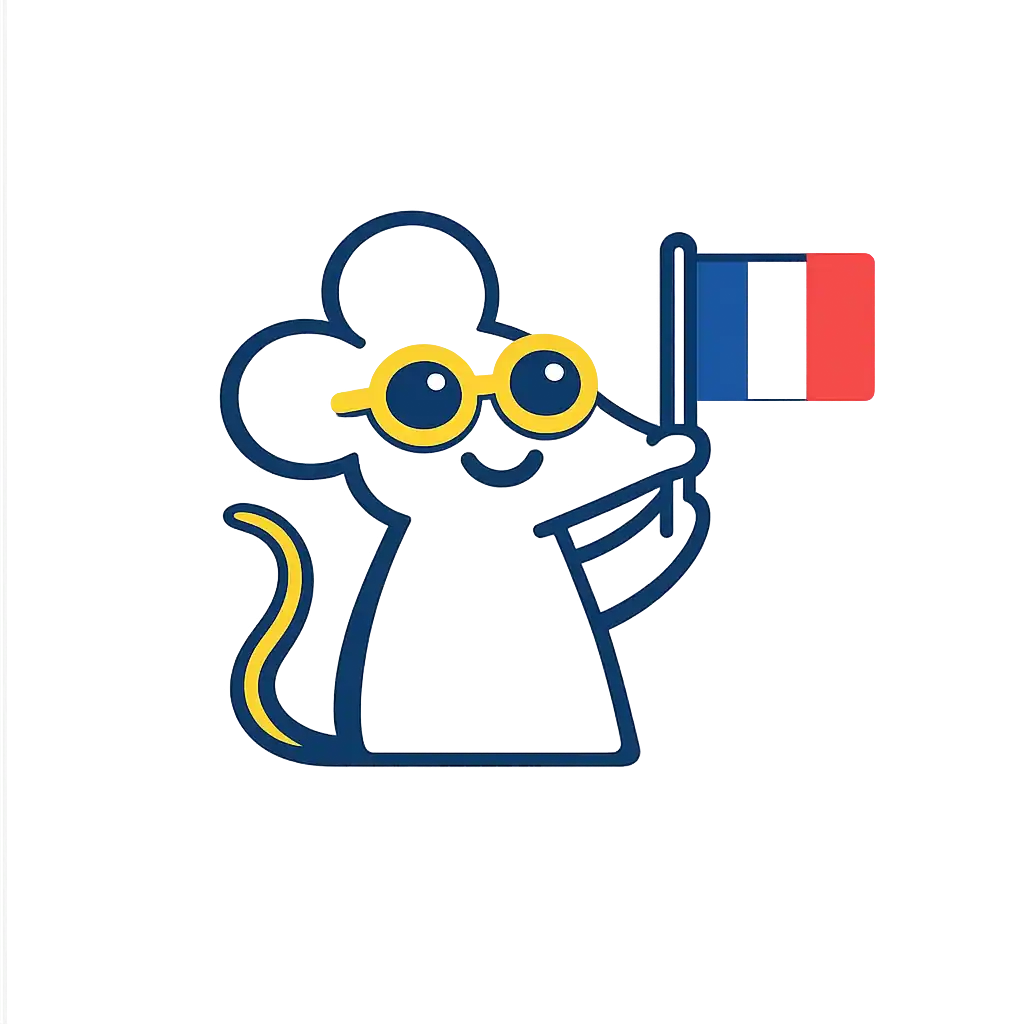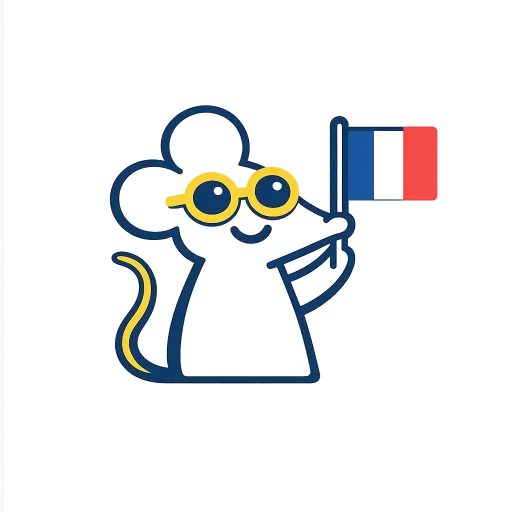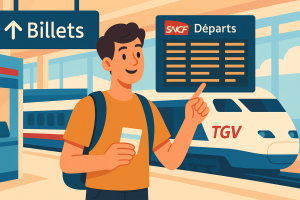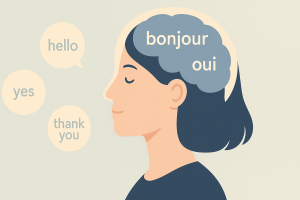Can you learn French in 3 months? — honest answer for English speakers (A1–B1)
The promise of learning French in three months attracts thousands of eager students annually, but marketing hype rarely matches linguistic reality. This honest guide examines what you can realistically achieve in three months, the intensive methods that produce fastest results, the critical difference between conversational ability and true fluency, and how to set achievable goals that maintain motivation rather than guarantee disappointment.
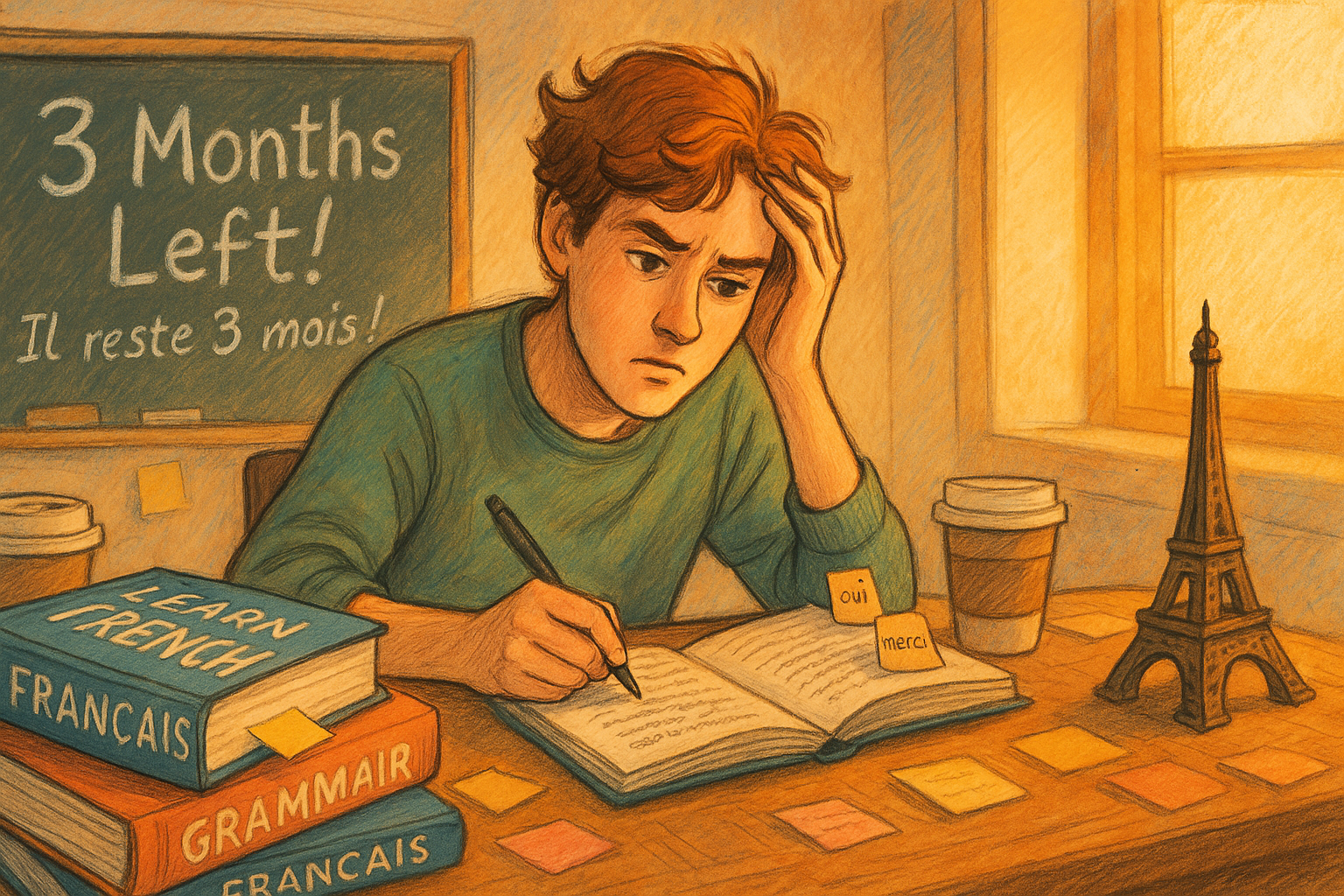
The short answer — it depends on your definition of “learn”
Can you learn French in three months? Yes and no. The answer depends entirely on what “learn” means to you. If learning French means ordering coffee confidently in Paris, navigating basic conversations, understanding simple texts, and communicating essential needs—absolutely achievable in three months with dedicated effort. If learning French means reading Proust in the original, debating philosophy with native speakers, or working as a professional translator—definitively impossible in three months regardless of method or intensity.
This definitional ambiguity allows language learning programs to make simultaneously true and misleading claims. “Learn French in three months!” technically accurate if “learn” means acquiring survival-level communication. Completely false if potential students assume “learn” means comprehensive fluency. Understanding realistic three-month outcomes requires examining actual learning timelines measured by standardized proficiency levels rather than marketing promises.
English speakers possess significant advantages when learning French—approximately thirty percent vocabulary overlap through Norman conquest heritage, shared alphabet, similar sentence structures in many contexts. These advantages accelerate early progress compared to learning Arabic or Mandarin. However, French pronunciation challenges, gendered nouns, complex verb conjugations, and subjunctive mood still demand substantial study hours that three months barely begins to cover comprehensively.
What you can realistically achieve in 3 months
With casual study (30 minutes daily) — 45 hours total
Expected level: Solid A1, beginning A2
What you’ll be able to do:
- Introduce yourself and exchange basic greetings
- Order food and drinks in simple situations
- Ask basic questions about directions, prices, time
- Understand simple written signs and short messages
- Recognize common vocabulary (300-500 words)
- Form simple sentences in present tense
What you won’t be able to do: Hold extended conversations, understand native-speed speech, discuss abstract topics, use past or future tenses confidently, comprehend French media without significant difficulty.
With serious study (1-2 hours daily) — 90-180 hours total
Expected level: Strong A2, touching B1 in some skills
What you’ll be able to do:
- Handle most common travel situations independently
- Describe experiences, opinions, and plans in simple terms
- Understand main points of clear standard speech on familiar topics
- Read simple texts about everyday subjects
- Write short, simple messages and emails
- Use present, past, and future tenses with regular verbs
- Recognize and use 1,000-1,500 common words
What you won’t be able to do: Participate in workplace discussions, understand rapid conversational French between natives, grasp nuanced meanings, use subjunctive mood, comprehend French films without subtitles, read contemporary literature comfortably.
With intensive immersion (3-4 hours daily + environment) — 270-360 hours total
Expected level: Solid A2, emerging B1 capabilities
What you’ll be able to do:
What you won’t be able to do: Achieve native-like fluency, understand all idiomatic expressions, grasp rapid speech in noisy environments, use subjunctive consistently, read challenging literature, communicate with same ease as English.
⚠️ Reality check: Marketing claims promising “fluency in three months” typically redefine fluency to mean basic conversational ability rather than comprehensive language mastery. True fluency—communicating effortlessly across all contexts with native-like comprehension—requires years, not months.
The math behind three-month learning
Language acquisition research, particularly Foreign Service Institute data, estimates French requires 600-750 classroom hours for English speakers to reach professional working proficiency (roughly B2/C1). Three months contains approximately ninety days. Achieving even 200 hours in three months requires over two hours daily without missing a single day. Reaching 400 hours demands four-plus hours daily consistently—essentially a full-time job dedicated solely to French study.
Most people attempting “learn French in three months” challenges underestimate the actual time commitment required for meaningful progress. Thirty minutes daily sounds manageable but produces only forty-five total hours over three months—enough for basic survival French, insufficient for conversational fluency. Even dedicated students rarely maintain truly intensive schedules without external accountability like immersion programs or professional obligations.
Daily hour requirements for different three-month goals
| Target Level | Total Hours Needed | Daily Hours Required | Realistic? |
|---|---|---|---|
| A1 (Basic) | 60-80 hours | 40-60 minutes | Very achievable |
| A2 (Elementary) | 180-200 hours | 2-2.5 hours | Achievable with commitment |
| B1 (Intermediate) | 350-400 hours | 4-4.5 hours | Difficult without immersion |
| B2 (Upper Intermediate) | 600-750 hours | 7-8.5 hours | Unrealistic for most people |
These calculations assume efficient, focused study with quality materials and methods. Ineffective study methods, inconsistent practice, or poor resource choices increase required hours significantly. Conversely, optimal conditions—immersion environment, professional instruction, strong motivation, previous language learning experience—can slightly reduce hours needed but cannot eliminate the fundamental time requirements for skill development.
Intensive methods that maximize three-month progress
Total immersion — the fastest possible path
Moving to a French-speaking country for three months while studying intensively produces fastest results by combining formal instruction with constant real-world practice. Immersion forces active production, provides immediate feedback, builds listening comprehension through continuous exposure, and creates motivating necessity for communication. Students in intensive immersion programs can progress from zero to solid A2/emerging B1 in three months.
However, true immersion requires more than geographic relocation. Passive residence in France while speaking English with other tourists produces minimal progress. Active immersion means: attending French classes daily, speaking French exclusively, consuming French media constantly, reading French texts, thinking in French, seeking conversation opportunities deliberately, and embracing discomfort of communicating beyond current level.
Structured intensive courses
Professional intensive courses designed for rapid acquisition—four to six hours of classroom instruction daily plus homework—provide systematic progression through core competencies. These programs cost thousands but offer structured accountability, immediate error correction, speaking practice with classmates, and comprehensive curriculum coverage that self-study rarely achieves.
The hybrid approach — maximize home-country preparation
For learners unable to relocate for three months, combining intensive self-study with strategic immersion elements produces next-best results:
- Study two to three hours daily using quality structured curriculum
- Practice with professional tutors three to five times weekly
- Consume French media daily (podcasts during commute, shows during meals)
- Change phone/computer language settings to French
- Join local French conversation groups for speaking practice
- Read French texts at your level plus one step above
- Use spaced repetition systems for vocabulary retention
- Write daily in French, even simple journal entries
💡 Efficiency tip: Focus on high-frequency vocabulary first. The most common 1,000 French words cover approximately eighty-five percent of daily conversation. Mastering these core words provides disproportionate communication ability compared to studying obscure vocabulary.
The all-in challenge approach
Some motivated learners attempt “all-in” challenges where French becomes their primary focus for three months—studying mornings, practicing afternoons, consuming French media exclusively, and minimizing native language use. This approach can produce remarkable results but requires: financial resources to reduce work obligations, strong self-discipline, tolerance for social isolation, and realistic expectations about sustainable burnout risk.
Critical skills to prioritize in limited time
Focus on communication over perfection
With only three months, prioritize communicative competence over grammatical perfection. Learn to express yourself clearly using simple structures rather than mastering complex grammar you’ll rarely use. Native speakers forgive grammatical errors but need comprehensible communication. Build speaking confidence alongside vocabulary and basic grammar rather than studying grammar rules exhaustively before attempting conversation.
Listening comprehension as foundation
Dedicate significant time to listening practice from day one. Understanding spoken French requires training your ear to segment continuous speech, recognize familiar words in natural contexts, and parse rapid pronunciation. This skill develops slowly, making early intensive practice essential. Listen to French daily—podcasts during commutes, background radio while cooking, subtitled shows before bed.
Practical vocabulary over academic completeness
Learn vocabulary that enables immediate real-world communication: café ordering phrases, travel vocabulary, common verbs, essential adjectives, question words. Defer literary vocabulary, specialized terminology, and low-frequency words until after establishing conversational foundation. Frequency-based vocabulary lists help prioritize effectively.
Pronunciation from the beginning
Establish correct pronunciation patterns early before fossilized errors become habits. French pronunciation—nasal vowels, the French R, liaison patterns, silent letters—differs significantly from English. Early focused practice prevents developing permanent accent that impedes comprehension. Spend fifteen minutes daily shadowing native speakers, practicing difficult sounds, and recording yourself for comparison.
What “fluent in 3 months” programs actually deliver
Popular “fluent in three months” methodologies emphasize rapid conversational ability through intensive speaking practice from day one, focusing on high-frequency patterns, accepting errors as learning opportunities, and measuring progress through communication success rather than grammatical accuracy. These approaches work for developing basic conversational skills quickly—their actual strength—while overpromising comprehensive fluency they cannot deliver.
The semantic trick involves redefining “fluent” to mean “able to have simple conversations” rather than “comprehensive mastery across all contexts.” By this reduced definition, motivated students can become “fluent” (conversationally functional) in three months. However, this fluency remains far from the comprehensive competence most people imagine when hearing “fluent in French.”
Recognize these programs’ actual value—rapid development of basic communication skills, confidence building, immersion in language learning—while maintaining realistic expectations about limitations. Three months of intensive study produces impressive beginner-to-intermediate progress, not native-like mastery.
Common pitfalls that waste precious time
Perfectionism paralysis
Obsessing over perfect grammar before attempting conversation wastes time better spent communicating imperfectly. Language acquisition requires making mistakes, receiving correction, and iterating. Students who wait until feeling “ready” for conversation never start speaking, missing critical practice that accelerates all other skills.
Passive consumption without active production
Watching French shows, reading texts, and listening to podcasts build receptive skills but don’t automatically transfer to productive abilities. Balance input with output—speak regularly, write daily, actively use new vocabulary and grammar patterns. Production requires different neural pathways than comprehension, demanding separate dedicated practice.
Scattered approach without systematic curriculum
Random resource hopping—trying different apps, switching textbooks frequently, following multiple methods simultaneously—prevents systematic progression through core competencies. Choose one primary structured curriculum providing comprehensive coverage, supplement strategically with specific tools for weak areas, but maintain consistent primary approach rather than constantly restarting with new methods.
Neglecting speaking practice
Solo study develops reading and listening but cannot build speaking fluency without conversation practice. Schedule regular speaking sessions with tutors, language exchange partners, or conversation groups. Speaking weekly proves insufficient—aim for at least three speaking sessions weekly to develop productive fluency alongside passive comprehension.
⚠️ Motivation trap: Initial rapid progress creates false expectations. Beginners advance quickly learning basic vocabulary and simple structures. Progress slows significantly at intermediate levels as complexity increases. Expect plateaus, maintain consistency through frustration, and celebrate small wins rather than expecting linear advancement.
Realistic three-month milestones
Month 1: Foundation building
Master pronunciation basics, learn present tense of common verbs (être, avoir, faire, aller), acquire essential vocabulary (greetings, numbers, basic nouns, common adjectives), practice simple question formation. You’ll understand basic signs, order simple items, introduce yourself, exchange basic information. Focus feels scattered as everything is new, but foundation establishes faster progress later.
🇫🇷 FR — Bonjour ! Je m’appelle Sarah. J’habite à New York. Je suis étudiante. /bɔ̃ʒuʁ ʒə mapɛl saʁa ʒabit a nju jɔʁk ʒə sɥiz‿etydjɑ̃t/
🇺🇸 EN — Hello! My name is Sarah. I live in New York. I’m a student.
Month 2: Expanding communication
Add past tense for discussing experiences, expand vocabulary to 800-1,200 words, improve listening comprehension for slow clear speech, practice extended conversations on familiar topics, develop reading ability for simple texts. You’ll handle basic transactions, describe daily routines, discuss preferences, navigate common travel situations. Progress feels more substantial as vocabulary connections strengthen.
🇫🇷 FR — Hier, je suis allée au marché et j’ai acheté des fruits. C’était très intéressant parce que j’ai parlé avec le vendeur en français. /jɛʁ ʒə sɥiz‿ale o maʁʃe e ʒe aʃte de fʁɥi setɛ tʁɛz‿ɛ̃teʁesɑ̃ paʁskə ʒe paʁle avɛk lə vɑ̃dœʁ ɑ̃ fʁɑ̃sɛ/
🇺🇸 EN — Yesterday, I went to the market and bought fruit. It was very interesting because I spoke with the seller in French.
Month 3: Conversational breakthrough
Develop conversational fluency in familiar domains, understand main ideas in standard speech, read simple authentic texts with manageable difficulty, write coherent paragraphs, use multiple tenses appropriately. You’ll participate in extended conversations about everyday topics, comprehend slow French media with effort, express complex ideas using simple structures. This month consolidates previous learning into functional communication ability.
🇫🇷 FR — J’apprends le français depuis trois mois maintenant. Au début, c’était très difficile, mais maintenant je peux avoir des conversations simples. Je vais continuer à étudier parce que je veux visiter la France l’année prochaine. /ʒapʁɑ̃ lə fʁɑ̃sɛ dəpɥi tʁwa mwa mɛ̃tnɑ̃ o deby setɛ tʁɛ difikil mɛ mɛ̃tnɑ̃ ʒə pø avwaʁ de kɔ̃vɛʁsasjɔ̃ sɛ̃pl ʒə vɛ kɔ̃tinɥe a etydje paʁskə ʒə vø vizite la fʁɑ̃s lane pʁɔʃɛn/
🇺🇸 EN — I’ve been learning French for three months now. At first, it was very difficult, but now I can have simple conversations. I’m going to continue studying because I want to visit France next year.
After three months — maintaining and advancing
Three months of intensive study creates momentum, not completion. The real challenge begins after initial intensive period ends—maintaining progress, continuing advancement, and integrating French into long-term routine rather than abandoning it when the challenge concludes. Many three-month learners regress significantly after intensive period ends because they stop practicing consistently.
Sustaining progress requires transitioning from intensive sprint to sustainable marathon pace. Reduce daily study time to manageable maintenance level (thirty to sixty minutes), maintain speaking practice through weekly conversation sessions, continue consuming French media regularly, and set new concrete goals (pass DELF A2 exam, read a French novel, visit France and navigate independently) that maintain motivation beyond arbitrary three-month deadline.
View three months as beginning, not ending. The foundation established enables continued growth through consistent moderate practice rather than intense burst followed by nothing. Language learning succeeds through years of steady engagement, not months of heroic effort followed by abandonment.
Study glossary — rapid learning vocabulary
| EN | FR | Definition |
|---|---|---|
| Immersion | Immersion | Complete linguistic environment for learning |
| Intensive study | Étude intensive | Concentrated high-volume learning period |
| Conversational fluency | Aisance conversationnelle | Ability to communicate in everyday situations |
| High-frequency vocabulary | Vocabulaire haute fréquence | Most commonly used words |
| Active production | Production active | Speaking and writing practice |
| Passive comprehension | Compréhension passive | Reading and listening ability |
| Spaced repetition | Répétition espacée | Review system for memory retention |
| Plateau | Plateau | Period of slow visible progress |
| Breakthrough | Percée | Sudden improvement in ability |
| Sustainable pace | Rythme durable | Long-term manageable study schedule |
| Fossilized error | Erreur fossilisée | Permanent mistake from early bad habits |
| Maintenance practice | Pratique de maintien | Regular study to preserve skills |
